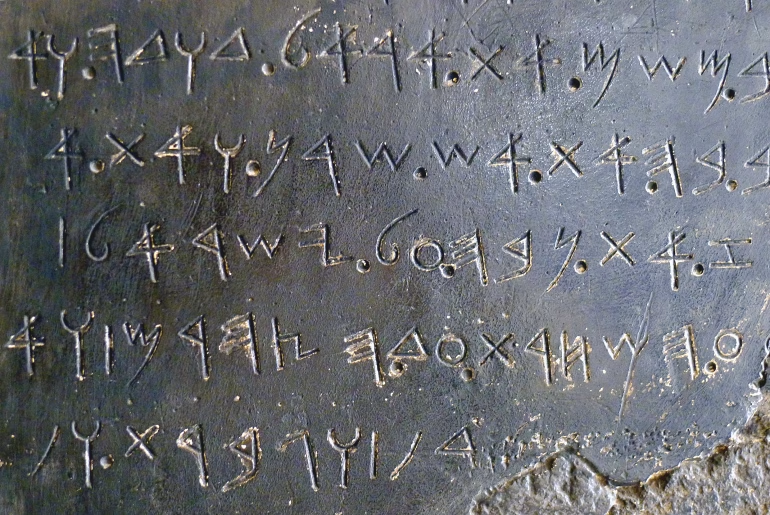In this article, I have compared the accounts of one event as described in the first three Synoptic gospels, Matthew, Mark and Luke. The reader should realize after comparison that the gospels were originally transmitted through oral tradition. In the process of writing, the writers of the gospels had changed the tradition according to their whims and fancies.
Comparing The Texts
The following discussion may prove that the authors of the gospels relied on oral tradition. This tradition, when it was written, was changed.
In the gospel of Mark, a man is reported to have asked Jesus,
“Good Teacher, what must I do to inherit eternal life?”
Jesus (P) simply replied,
“Why do you call me good ? No one is good but God alone. You know the commandments : ‘You shall not murder ; You shall not commit adultery ; You shall not steal ; You shall not bear false witness ; You shall not defraud ; Honor your father and mother.’ ”
This incident is also reported in gospel of Matthew. Luke agrees with Mark, but in Matthew the conversation is completely changed. In Matthew, the man addresses Jesus (P) as “teacher,” and instead of “good teacher” is in Mark and Luke, in Matthew we see “good deed.” In Matthew, the man is reported to have said :
“Teacher, what good deed must I do to have eternal life?”
This changes the issue in Jesus’ reply from the goodness of Jesus(P) to goodness of deed :
“Why do you ask me about what is good ? There is only one who is good. …” (Matthew 19:16 – 17)
Mark and Luke give descriptions which agree with the Islamic concept of God and Jesus, that God alone is good and Jesus was His messenger. But, Matthew could not think of Jesus(P) calling God “good,” and therefore, he alters the earlier tradition.
Immediately, this also shows that Mark was using an earlier tradition which didn’t recognize Jesus as being Divine.
All the three Synoptic gospels agree that Jesus (P) went to John to be baptized, so that Jesus’ sins would be forgiven. This is in agreement with what we have seen above : Jesus(P) considered God alone to be good and didn’t preach the Trinity.
Luke and Mark mentions that Jesus (P) was baptized by John, but they did not mention any words between them. But to Matthew, this is inconceivable. Matthew could not even think of Jesus being baptized for the reason of his sins being forgiven. Therefore, he fabricates a conversation between John and Jesus (P):
“John would have prevented [Jesus from being baptized], saying, ‘I need to be baptized by you, and do you come to me?’ But Jesus answered him, ‘Let it be so now, for it is proper for us in this way to fulfill all righteousness.’ Then [John] consented.”
In Mark, we are told that :
“And they crucified with him two bandits, one on his right and one on his left … . Those crucified with him also taunted him.” (Mark 15 : 27, 32)
This time Matthew agrees with Mark, both the bandits crucified with “Jesus” taunted him. But Luke could not even think that his “Savior” was crucified without any “saving act.” Therefore, he fabricates a conversation :
“One of the criminals who were hanged there kept deriding him and saying, ‘Are you not the Messiah ? Save yourself and us!’ But the other rebuked him, saying, ‘Do you not fear God… we are getting what we deserve for our deeds, but this man has done no wrong.’ Then he said, ‘remember me when you come into your kingdom. Truly I tell you, today you will be with me in Paradise’ ” (Luke 23:39 – 43)
Luke has changed the bandit who taunted Jesus(P) as reported in Mark and Matthew into a “good guy.” Furthermore, this is definitely a fabrication because it says “Truly I tell you, today you will be with me in Paradise”. This means Jesus said that he would be in Paradise “today,” i.e. the day of his crucifixion. But, in the gospels we are also told that Jesus(P) didn’t go to Paradise when he was crucified according to his own words. Jesus said : “After three days I will rise again.” (Matthew 27:93)
Through the gospel of Mark, we got to know that he went to heaven after the resurrection, after he was crucified. (Mark 16:19)
This shows that Luke too thought like Matthew about Jesus(P). Both Matthew and Luke were corrupters of earlier tradition. It was Mark who reported the earlier tradition as it had reached him. And yes, an interesting question arises : If Jesus(P) did not go to heaven on the day he was crucified but he went to heaven after his resurrection, does this mean that Jesus(P) was not telling the truth on the cross to the bandit ?
In Mark, the last words of Jesus (P) are : “My God, my God, why have you forsaken me?” (Mark 15:34)
Matthew agrees with Mark. But once again, Luke could not even think of Jesus (P) saying such words. Therefore, he completely changes Jesus’ last words, and made him say :
“Father, into your hands I commend my spirit.” (Luke 23:46)
All the three synoptic gospels tell the story of Jesus(P) going to his own hometown and preaching in the synagogue there. The people reject him, to which Jesus(P) reacts by saying that no prophet is honored or accepted except in his own hometown.
Mark says that :
“And he could do no deed of power [miracle] there, except that he laid his hand on a few sick people and cured them. And he was amazed at their unbelief” (Mark 6:5 – 6)
Mark is clear, Jesus(P) could not do a miracle alone. But now, let’s see how both Matthew and Luke do not accept this. They could not even think that Jesus, “the son of God,” could not do any miracle. Therefore, Matthew changes “could not” to :
“And he did not do any deeds of power there, because of their unbelief” (Matthew 13:58)
Please note, “could not” has been changed to “did not.” And Luke once again fabricates words and attributes them to Jesus(P):
“But the truth is, there were many widows in Israel [during famine] in the time of Elijah ; yet Elijah was sent to none of them except to a widow at Zarephath in Sidon. There were many lepers in Israel in the time of the prophet Elisha, and none of them were cleansed except Namaan the Syrian.” (Luke 4:25 – 27)
Thus, both Matthew and Luke had clearly changed “could not” to “did not.”
Conclusions
After the above discussion, does it mean that Mark’s gospel is the most authentic ? Most assuredly not, because if it was highly authentic, then Matthew and Luke would not have needed to change the earlier tradition. These are examples of the corruption of Scriptures. The above discussion is enough to prove that the gospels is clearly of doubtful origin. Should we then place our very “salvation” on these texts ?
And only God knows best.




